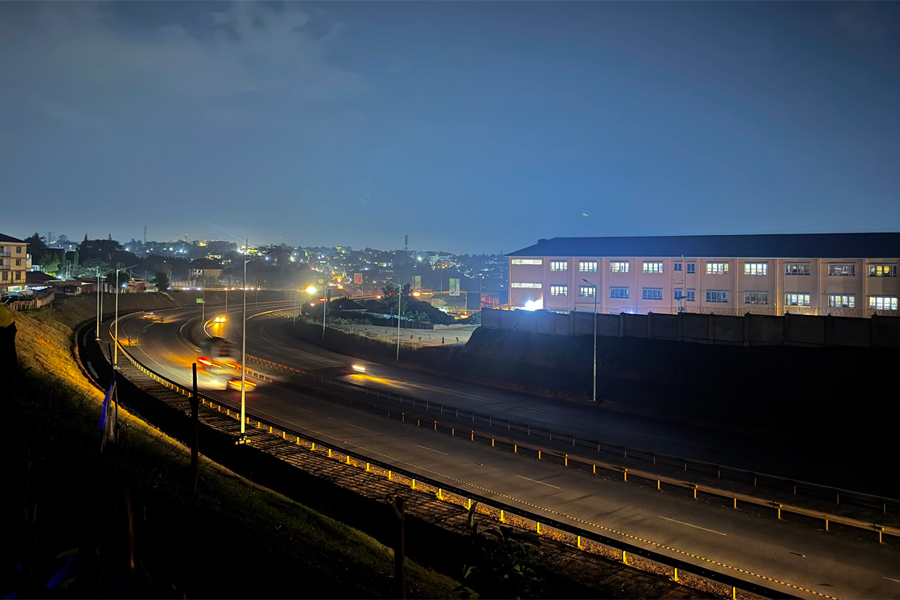Vandals Blamed for Darkness on Kampala Northern Bypass Despite New Streetlights

Authorities have blamed persistent vandalism for the continued darkness along parts of the Kampala Northern Bypass, where streetlights had recently been installed but abruptly stopped working — sparking concern and questions from road users.
The Ministry of Works and Transport responded on Sunday to a public query posted on X (formerly Twitter), after a user wondered why the newly erected lights between Busega and Kyebando had gone blank so soon after installation.
Allan Ssempebwa, the Ministry’s senior communications officer, revealed that vandals have been targeting the infrastructure, stealing critical components — especially solar batteries — which has compromised the lighting system.
“We’re currently undertaking the installation of lighting poles along the Northern Bypass, stretching from Busega to Namboole,” Ssempebwa said.
“Unfortunately, the progress and functionality has been disrupted by acts of vandalism, leading to these outages particularly along the Busega–Kyebando section where poles had already been installed.”
He added that restoration works are underway to replace stolen infrastructure, and he urged the public to report any suspicious activity to the nearest police station.
“Let’s protect these assets,” he appealed. “Report any alerts so that these vandals are apprehended!”
The lighting project is part of long-delayed enhancements to the Northern Bypass — a key transport corridor built to ease congestion in Kampala by rerouting through-traffic.
Construction of the road began in 2004, with the first phase (Busega to Kireka) opening in 2009.
However, street lighting was not included in that initial project scope.
The second phase, which included capacity upgrades and expansion to Namboole, began in 2014 and faced several delays before completion in 2022.
It is only recently that the ministry has embarked on lighting the full corridor — a move widely welcomed by road users who for years have raised safety and security concerns due to the pitch darkness at night.
The bypass, which stretches about 21 kilometres, cuts through densely populated and high-traffic zones such as Bwaise, Kyebando, and Kalerwe.
Without lighting, many of these areas have seen a spike in nighttime robberies and traffic accidents.
But even as the government moves to fix what was long seen as an oversight, theft and vandalism threaten to undo the progress.
According to officials, solar batteries and wiring are being ripped out of the installed units — turning the lights off almost as soon as they are switched on.
The Ministry is now calling for community involvement to safeguard the infrastructure, warning that continued sabotage will only delay much-needed improvements to road safety and urban mobility.
"It’s important for the public to appreciate the delicate balance we face; delivering essential services while protecting public infrastructure," Ssempebwa told the Nile Post.
"It all comes at a significant cost. Most importantly, we must remain vigilant. Lets all look out for acts of vandalism and promptly report any suspicious activity to the authorities. Safeguarding public investments is a shared responsibility."
As Kampala struggles to modernize its transport network, the Northern Bypass — once envisioned as a signature decongestion project — now serves as a stark reminder that infrastructure is only as effective as the society willing to protect it.



0 Comments